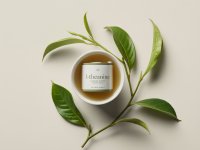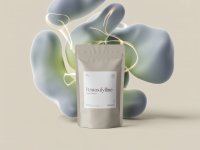
cranberry
Description
Cranberry (Vaccinium macrocarpon) is a fruit native to Eastern North America and also found in Northern Europe, with Native Americans traditionally using it for bladder and kidney ailments for centuries. It works primarily through compounds like proanthocyanidins that prevent bacteria from adhering to tissues, especially in the urinary tract, and also offers antioxidant and anti-inflammatory effects. Studies show strong evidence for cranberry's role in preventing urinary tract infections, and emerging research suggests benefits for cognitive function, cardiovascular health, and neuroprotection.
Table of Contents
Categories & Effectiveness
Learn about our rating methodologyBrain Health
Brain Circulation Boost
7/10Strong evidence of effectiveness
Brain Antioxidant Shield
4/10Moderate evidence of effectiveness
Synaptic Plasticity
2/10Limited evidence of effectiveness
Cognition
Memory & Recall
4/10Moderate evidence of effectiveness
Systemic Health
Blood Pressure Regulation
7/10Strong evidence of effectiveness
Systemic Antioxidant
7/10Strong evidence of effectiveness
Vascular Health
7/10Strong evidence of effectiveness
Cellular Anti-Aging
2/10Limited evidence of effectiveness
Dosage & Side Effects
Recommended Dosage
It's important to note that these are general guidelines, and individual needs may vary. Consult with a healthcare provider to determine the best dosage for your specific situation. Key for You: Always choose reputable brands and follow product label instructions.
Potential Side Effects
Use cautiously if you have an aspirin allergy, as cranberries contain salicylic acid. Those with diabetes should choose unsweetened cranberry products. People with a history of kidney stones should avoid excessive consumption of cranberry juice or extract, as it may increase the risk of stone formation. In rare cases, cranberry has been associated with thrombocytopenia.
Bioavailability & Half-Life
Cranberry's proanthocyanidins (PACs) are thought to be responsible for its UTI-preventive effects, but their bioavailability is debated. Some studies suggest that PACs are poorly absorbed, while others indicate that they are metabolized in the gut. Further research is needed to fully elucidate the pharmacokinetics of cranberry's active compounds.
Interactions & Stacks
Cranberry may also interact with medications that are changed and broken down by the liver, specifically Cytochrome P450 3A4 and 2C9 substrates. Monitor for any unexpected side effects or reduced efficacy of these medications. While there are no known interactions with herbs and supplements, it's always best to inform your healthcare provider about all supplements you are taking.
Recommended Products
Doppelherz Heiße Cranberry - Vitamin C und Zink zur Unterstützung der normalen Funktion des Immunsystems - heiß und kalt - vegan - 10 Beutel
- Rated 4.7 stars by 709 customers
- Premium quality ingredients
Cranberry Kapseln mit Vitamin C - entspricht ca. 25.000mg Cranberry Pulver (50:1) - 6 Monate Vorrat - 180 Stück & Vegan - 200mg Vit C - WeightWorld
- Rated 4.7 stars by 2,642 customers
- Premium quality ingredients
Cranberry Extrakt + Vitamin C - 360 Cranberry Kapseln hochdosiert - 25:1 Extrakt, entspricht 25.000mg - 6% Proanthocyanidine - Vegan & ohne Zusätze - TRUE NATURE
- Rated 4.7 stars by 100 customers
- Premium quality ingredients
As an Amazon Associate we earn from qualifying purchases. Prices and availability are accurate as of the date/time indicated and are subject to change.
Benefits by Use Case
UTI prevention
Prevents UTIs by inhibiting E. coli from adhering to the urinary tract walls. Most effective for women with recurrent UTIs; less effective for pregnant or elderly individuals.
User Review:
As per my case, that ISN'T true because I already had the UTI before taking cranberry juice.
memory improvement
Chronic consumption of cranberries for 12 weeks improves episodic memory and regional brain perfusion in healthy older adults. More studies are needed to confirm these benefits.
Research Finding:
Chronic consumption of Cranberries (Vaccinium macrocarpon) for 12 weeks improves episodic memory and regional brain perfusion in healthy older adults.
cardiovascular health
May reduce systolic blood pressure and body mass index. Limited evidence for improving cholesterol levels or other cardiovascular risk factors.
Research Finding:
Cranberry administration significantly reduced systolic blood pressure (SBP) and body mass index (BMI).
anti-inflammatory
Antioxidants in cranberries may help reduce inflammation throughout the body. Further research is needed to determine the extent of these effects.
Research Finding:
Ellagic acid may initiate numerous cell signaling transmissions and decrease the progression of neurodegeneration. Its neuroprotective effects are attributed to its antioxidant effect, iron chelating, and mitochondrial protective capabilities
Mechanism of Action
Cranberry also exhibits antioxidant properties, thanks to compounds like anthocyanins and ellagic acid. These antioxidants may help reduce oxidative stress and inflammation throughout the body. Ellagic acid may also initiate cell signaling transmissions and decrease the progression of neurodegeneration
Frequently Asked Questions
Where to Buy cranberry
Based on quality, price, and customer reviews, here are our top recommended cranberry supplements:
Cranberry Kapseln mit Vitamin C - entspricht ca. 25.000mg Cranberry Pulver (50:1) - 6 Monate Vorrat - 180 Stück & Vegan - 200mg Vit C - WeightWorld
- Rated 4.7 stars by 2,642 customers
- Premium quality ingredients
Cranberry Double Strength 10.000 mg 90 Tabletten mit Vitamin C-Zusatz - High Strength Daily Supplement - UK Hergestellt | GMP-Standards von Prowise Healthcare
- Rated 4.4 stars by 1,747 customers
- Premium quality ingredients
Vitabay Cranberry Kapseln Hochdosiert 10000mg + Vitamin C - 90 Kapseln Vegan Cranberry Extrakt Cranberry Extract aus natürlichen Zutaten - Cranberry Tablets Cranberry Hochdosiert und Laborgeprüft
- Rated 4.4 stars by 1,250 customers
- Premium quality ingredients
As an Amazon Associate we earn from qualifying purchases. Prices and availability are accurate as of the date/time indicated and are subject to change.
Summary & Expert Opinion
Delving deeper, cranberry's efficacy in UTI prevention hinges on its proanthocyanidins (PACs), specifically A-type PACs. These compounds inhibit bacterial adhesion by binding to fimbriae on E. coli bacteria, preventing them from attaching to the uroepithelial cells lining the urinary tract. This mechanism is supported by numerous in vitro and clinical studies, though some trials have yielded conflicting results due to variations in study design, cranberry product type, and participant populations.
The interaction between cranberry and warfarin is a significant concern. While some studies have found no interaction, others have reported increased anticoagulant effects and bleeding complications. This variability may be due to differences in individual metabolism, warfarin dosage, and the concentration of active compounds in cranberry products. It's crucial for individuals on warfarin to monitor their INR levels closely if consuming cranberry products.
Furthermore, the bioavailability of cranberry's active compounds remains a topic of ongoing research. While anthocyanins are readily absorbed, the absorption and metabolism of PACs are less clear. Gut microbiota may play a role in breaking down PACs into smaller, more bioavailable metabolites. Genetic factors may also influence an individual's response to cranberry, affecting the absorption, metabolism, and excretion of its active compounds.
In conclusion, cranberry is a promising natural remedy for UTI prevention and a source of beneficial antioxidants. However, it's essential to be aware of potential interactions and individual variability in response. Consulting a healthcare professional is always recommended, especially for those with underlying health conditions or taking medications.









